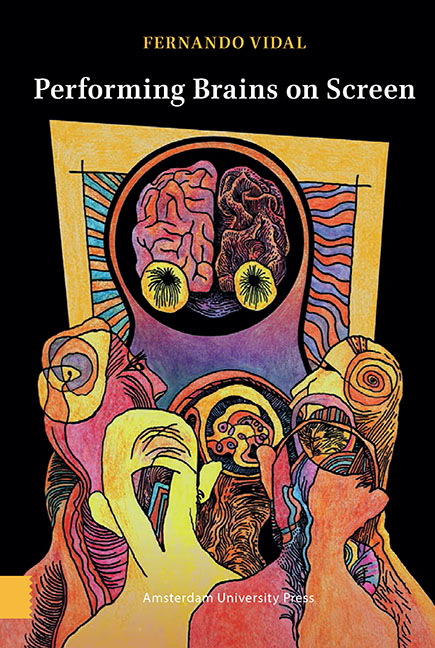Book contents
Summary
Abstract
This chapter discusses pictures that enact brain transplantation as means for realizing personal immortality, and addresses such questions as: To what extent do brains sustain personal continuity? Which challenges await A's brain in B's body? What happens with these transgenerational (and occasionally interracial) brains? Given the closeness of some filmic, mythical, and literary materials with regard to fantasies of longevity and immortality, the chapter includes a small sample of the latter since antiquity. It nonetheless focuses on the filmic performance of the paradox inherent in the desire to transcend the body by retaining one's brain through consecutive re-embodiments. Case studies include The Man Who Changed His Mind (1936), Change of Mind (1969), and The Man With the Transplanted Brain (1971).
Keywords: brain transplantation, immortality, longevity, myth, race relations, transgenerational brain
The global increase in life expectancy has turned the deterioration of the brain into a health problem of epidemic proportions (WHO 2012). The challenge is both collective and individual. At the collective level, it is anticipated that the number of people with dementia and Alzheimer's will increase to 135 million by 2050, with over 70% of them living in lowor middle-income countries, and with costs escalating proportionately, especially for those countries, beyond the annual US$ 604 billion recorded in 2010 (ADI 2013). Part of the drama of dementias is that they affect both personal identity and the conditions of personhood. Beyond a certain point, the persons whom we knew are “no longer there” and the signs they produce seem reduced to signifiers of the disease. Using a chemical metaphor, the French philosopher Michel Malherbe (2015, 225) speaks of the “ontological denaturation” Alzheimer's operates: it ceases to be an “accident of life,” which is what illness usually are, even when chronic, and becomes the person's essence. That is why, for him, the question Alzheimer's raises is not the usual and superficial one, whether a loved one with the illness recognizes us, but a more fundamental one: whether and how we recognize her – not as she was before, but in her current manner of being in the world (ib., 9).
- Type
- Chapter
- Information
- Performing Brains on Screen , pp. 127 - 154Publisher: Amsterdam University PressPrint publication year: 2022



